Unwind at Xingkai Lake: Nature’s Oasis in the Heart of Heilongjiang
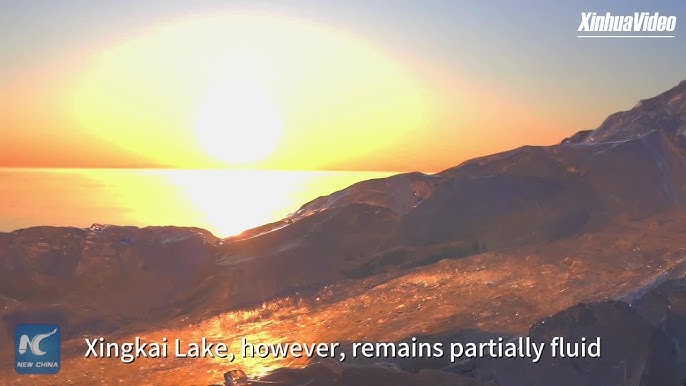
An Essential Guide to Visiting Xingkai_Lake
Nestled along the Sino-Russian border, Xingkai Lake, also known as Lake Khanka, is a breathtaking gem that beckons travelers with its tranquil waters and stunning natural beauty. As the largest freshwater lake in Northeast China, it offers a unique blend of rich history, diverse ecosystems, and a plethora of outdoor activities that cater to every type of traveler. With its slightly oval shape, fed by nine rivers, the lake’s vast expanse is not just a feast for the eyes but also a sanctuary for countless migratory birds, making it a paradise for birdwatchers and nature enthusiasts alike.
The surrounding area, particularly the Xingkai Lake Westland Park, invites you to explore its lush wetlands, sandy beaches, and charming towns, each steeped in cultural significance. From the historical echoes of the Sino-Russian Treaty of Beijing to the captivating landscapes that change with the seasons, a visit to Xingkai Lake promises a delightful escape into nature, history, and local culture. Whether you seek an adventurous day of water sports, a peaceful retreat for relaxation, or an educational journey through the lake’s geological and cultural heritage, Xingkai Lake has something special to offer everyone.
Prepare to embark on an unforgettable journey to one of Northeast China’s most enchanting destinations, where every moment spent by the serene shores of Xingkai Lake will leave you with memories to cherish for a lifetime.
In This Guide
- An Essential Guide to Visiting Xingkai_Lake
- The Rich History and Legends of Xingkai_Lake
- Main Highlights: What You Absolutely Can’t Miss
- Planning Your Visit: A Practical Guide
- Tickets: Prices, Booking, and Tips
- How to Get There: A Complete Transportation Guide
- Local Cuisine and Accommodation Nearby
- Frequently Asked Questions
- Final Thoughts on Your Trip
The Rich History and Legends of Xingkai_Lake
Nestled on the border between China and Russia, Xingkai Lake, also known as Lake Khanka, is a breathtaking freshwater paradise steeped in rich history and captivating legends. This expansive lake, the largest in Northeast China, has long been a silent witness to the ebb and flow of civilizations, making it a fascinating destination for international travelers seeking to explore its storied past.
Historically, Xingkai Lake was a natural inland water body until geopolitical shifts transformed it into a border lake following the signing of the Sino-Russian Treaty of Beijing in 1860. This agreement not only altered the landscape of the region but also marked the lake as a significant boundary between two powerful nations. Today, approximately one-third of the lake’s surface area lies within Chinese territory, while the remaining expanse stretches into Russia. The lake’s name itself, derived from the Manchu language, translates to “water flowing from a high place to a low place,” aptly describing its origins and the rivers that feed it.
The legends of Xingkai Lake are as enchanting as its scenery. Folklore speaks of mystical beings that once inhabited the area, including the Dragon King, a revered figure believed to control water and rainfall. Locals often tell tales of the Dragon King’s temple, still standing as a testament to the deep-seated spiritual connections that the indigenous people have with the lake. It is said that during times of drought, communities would gather at the temple to pay homage, hoping to invoke the Dragon King’s favor for much-needed rain.
The surrounding regions, including Dangbi Town and Baipaozi Township, offer glimpses into the lake’s cultural significance. Dangbi, positioned at the lake’s western edge, is not only a picturesque locale but also a historical site. Here, visitors can marvel at the world’s smallest boundary bridge, the Bailing River Bridge, which connects the two nations across the water. This bridge symbolizes the delicate balance of cooperation and division that defines the area.
As one delves deeper into the history of Xingkai Lake, the interplay between nature and human activity becomes evident. The lake and its wetlands have served as crucial habitats for migratory birds, making it a hotspot for ornithologists and nature enthusiasts alike. The Xingkai Lake Wetland Park, part of the scenic area, is a sanctuary for these birds and a place where visitors can witness the beauty of nature while reflecting on the lake’s ecological importance.
While the best time to experience Xingkai Lake is during the warmer months from May to September, the lake takes on a different character in the winter. The frozen expanse becomes a quiet retreat, allowing for solitude and reflection. However, it is essential for travelers to note that many attractions are closed from December to March, so planning ahead is crucial.
In summary, Xingkai Lake is not just a natural wonder but a living chronicle of history, culture, and legend. Its waters have witnessed countless stories, from the ancient folklore of the Dragon King to the modern-day interactions between two nations. For those with a thirst for discovery and a love for nature, a visit to this enchanting lake promises an experience that is both enriching and unforgettable.
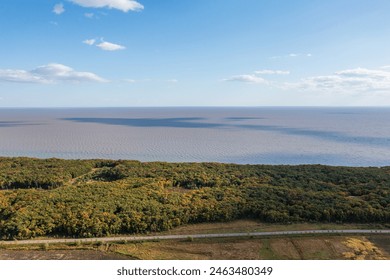
Xingkai_Lake.
Main Highlights: What You Absolutely Can’t Miss
Nestled on the Sino-Russian border, Xingkai Lake, also known as Lake Khanka, offers an array of breathtaking sights and experiences for international travelers. This destination is not only rich in natural beauty but steeped in cultural significance. Here are the essential highlights you absolutely cannot miss when visiting this captivating area.
1. Xingkai Lake Wetland Park
The crown jewel of the region, Xingkai Lake Wetland Park is a paradise for nature lovers and bird watchers. The park is home to numerous migratory bird species that flock here, particularly during the warmer months from May to September. A leisurely stroll along the trails allows you to soak in the serene landscapes, teeming with vibrant flora and fauna.
2. Dangbi Town
At the western end of Xingkai Lake lies Dangbi Town, a charming locale that serves as a gateway to various attractions. Here, you can marvel at the world’s smallest boundary bridge, the Bailing River Bridge, which links China and Russia. Spend your day relaxing on the sandy beaches, taking a dip in the lake, or indulging in local delicacies at nearby eateries.
3. The Cultural Richness of Xingkai Lake Museum
Delve into the history and culture of the region at the Xingkai Lake Museum. This institution showcases the geological evolution of the area and its rich heritage, including artifacts from the Stone Age. It’s a delightful stop for those wanting to connect more deeply with the local culture.
4. Dragon King Temple
A visit to the Dragon King Temple is a must for those interested in local spirituality and architecture. Nestled on the shores of the lake, the temple is a serene spot that offers a glimpse into the religious practices of the region. The temple’s intricate designs and peaceful ambiance create a perfect backdrop for reflection and photography.
5. Honey Mountain and Golden Beach
For adventure seekers, a hike up Honey Mountain provides stunning panoramic views of the lake and surrounding landscapes. After your hike, unwind at Golden Beach, where the golden sands and gentle waves create an idyllic setting for relaxation and leisure activities.
6. Xinkailiu Cultural Site
Step back in time at the Xinkailiu Cultural Site, where you can explore relics from the Stone Age. This archaeological site gives insight into the lives of ancient inhabitants and is a fascinating addition to your itinerary.
7. Seasonal Wonders
Keep in mind that the tourist season typically runs from May to September. During the winter months (December to March), many attractions may close, but the lake transforms into a winter wonderland, offering unique scenic views for those willing to brave the chill.
8. Local Gastronomy
Don’t miss the opportunity to savor the local cuisine. The area around Xingkai Lake is known for its fresh fish dishes and unique culinary offerings that celebrate the flavors of Northeast China. Be sure to try local specialties at dining spots in Dangbi Town.
9. Photography Opportunities
With its breathtaking landscapes, vibrant sunsets, and diverse wildlife, Xingkai Lake is a photographer’s dream. Bring your camera to capture the stunning scenery, whether it’s during a tranquil morning or a colorful evening sunset over the lake.
Conclusion
Xingkai Lake is a remarkable destination that beautifully combines natural wonders with cultural richness. Each highlight presents an opportunity to connect with the landscape, history, and people of this extraordinary region. Whether you’re seeking adventure, relaxation, or a deeper understanding of local heritage, Xingkai Lake promises an unforgettable experience.
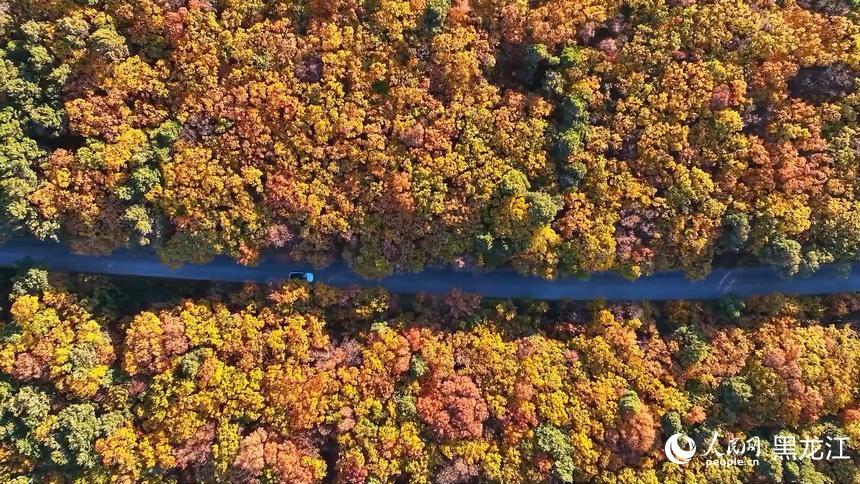
Xingkai_Lake.
Planning Your Visit: A Practical Guide
Xingkai Lake, nestled along the Sino-Russian border, is a hidden gem waiting to be explored. Whether you’re a nature enthusiast, history buff, or simply seeking a tranquil escape, this stunning destination has something for everyone. Here’s everything you need to know to plan your visit.
Getting There
Xingkai Lake is located approximately 40 kilometers southeast of Mishan City in Jixi, China. The most convenient way to reach the lake is by car, allowing you to enjoy the scenic routes along the way. If you’re coming from a larger city, consider taking a train or bus to Mishan and then hiring a taxi or local transport to the lake.
Best Time to Visit
The ideal time to explore Xingkai Lake is from May to September when the weather is mild, and the scenery is in full bloom. During these months, the lake is alive with vibrant colors and wildlife, making it perfect for photography and outdoor activities. Be mindful that from December to March, many attractions may close due to seasonal conditions, limiting your options for exploration.
Entrance Fees and Hours
Xingkai Lake Westland Park is open year-round, 24/7, allowing visitors to experience its beauty at any time. Entrance fees may vary, so it’s advisable to check the latest prices or promotions online before your visit. For ticket inquiries, you can reach out via phone at +86-467-5608802.
What to See and Do
-
Natural Scenery: Marvel at the expansive views of Xingkai Lake, which is the largest freshwater lake in Northeast China. With its slightly oval shape, the lake is fed by nine rivers, creating a unique ecosystem.
-
Wildlife Watching: The wetlands surrounding the lake are a haven for migratory birds. Bring your binoculars and enjoy birdwatching in this serene environment.
-
Visit Key Attractions:
- Dangbi Town: Explore this charming town located at the west end of the lake. It’s close to the Mishan Port and features the world’s smallest boundary bridge, the Bailing River Bridge.
- Xingkai Lake Wetland Park: A perfect spot for leisurely walks and photography.
- Xingkai Lake Museum: Discover the local geology and culture, including artifacts from the Stone Age.
-
Cultural Sites: Don’t miss the Xinkailiu Cultural Site, showcasing significant relics and insights into the area’s history.
-
Relaxation and Recreation: Enjoy a day at the beach, where you can soak up the sun or partake in water activities depending on the season.
Dining and Amenities
While exploring Xingkai Lake, dining options may be limited within the park itself. It’s advisable to bring snacks and water. However, you can find local eateries in Dangbi Town, where you can enjoy authentic regional cuisine. The park also offers basic amenities such as parking and souvenir shops.
Tips for Travelers
- Pack Accordingly: Dress in layers, as temperatures can fluctuate throughout the day. Comfortable walking shoes are a must for exploring the trails.
- Stay Hydrated: Bring enough water, especially during the warmer months, to keep yourself refreshed during your adventures.
- Respect Nature: As with any natural site, it’s essential to follow Leave No Trace principles to protect the environment.
Conclusion
Xingkai Lake is a captivating destination that combines natural beauty with rich cultural heritage. With thoughtful planning and preparation, your visit can be a memorable escape into one of Northeast China’s most enchanting landscapes. Embrace the tranquility, immerse yourself in the scenery, and enjoy the unique experiences that await you at Xingkai Lake.
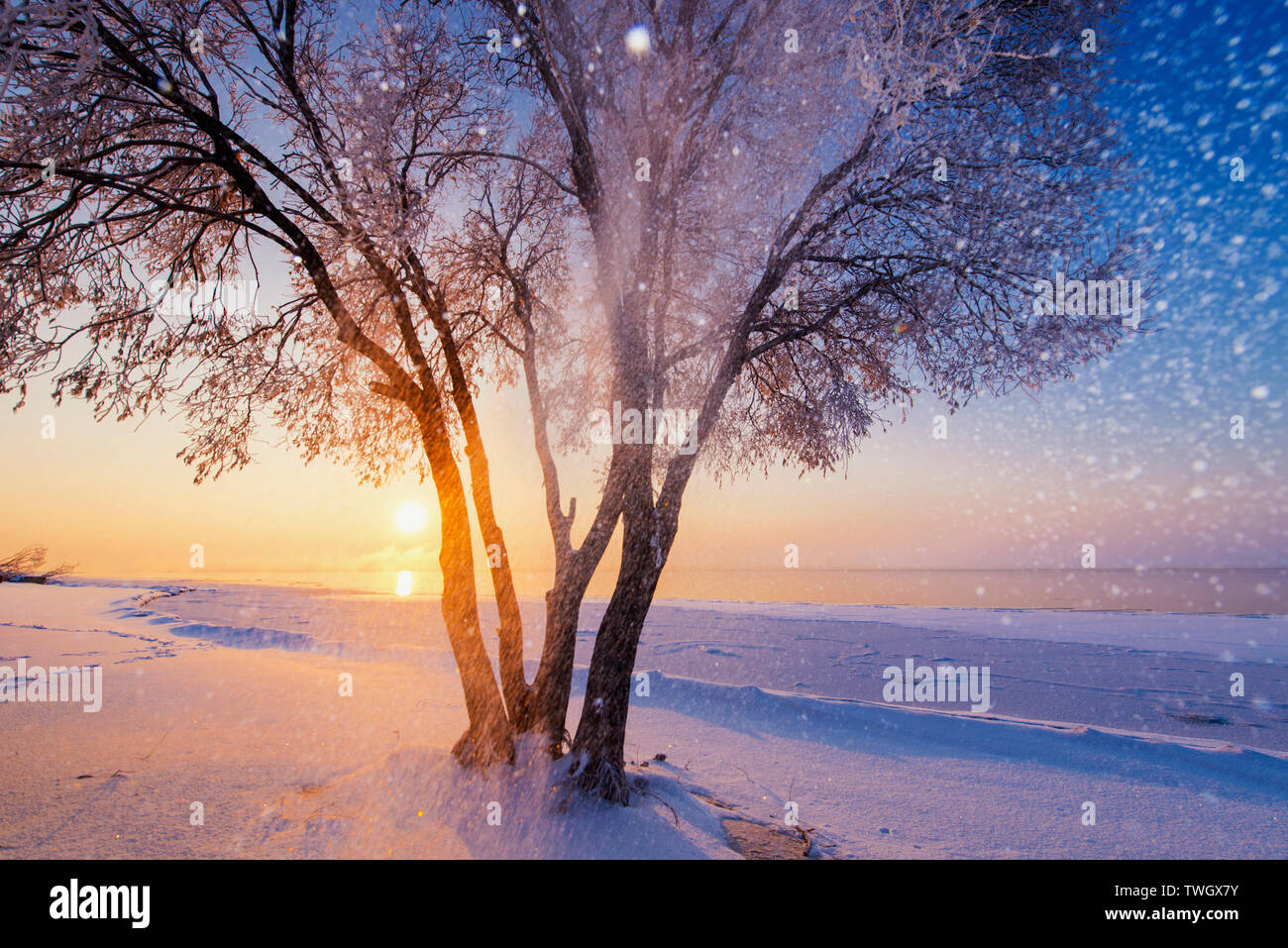
Xingkai_Lake.
Tickets: Prices, Booking, and Tips
Visiting Xingkai Lake, a stunning natural wonder located on the Sino-Russian border, offers travelers a unique opportunity to immerse themselves in breathtaking scenery and rich local culture. To help you plan your visit, here’s everything you need to know about tickets, prices, booking, and helpful tips.
Ticket Information
Opening Hours: Xingkai Lake Westland Park is open year-round, allowing visitors to explore its beauty at any time. However, the recommended sightseeing time is typically one day to fully appreciate the park’s offerings.
Ticket Prices: As of 2025, ticket prices for Xingkai Lake Westland Park are designed to be accessible for all travelers. While specific pricing details may vary, it’s advisable to check platforms like Trip.com for the latest rates and potential discounts.
Booking Tickets: It’s convenient to book tickets online through travel platforms such as Trip.com. This not only secures your entry but may also provide options for bundled deals that include transportation or other attractions in the area. If you prefer purchasing tickets on-site, be aware that the park can get busy during peak tourist seasons, particularly from May to September.
Tips for Your Visit
-
Best Time to Visit: The prime tourist season runs from May to September. During this period, the weather is pleasant, and various attractions around the lake are fully operational. From December to March, many attractions may be closed due to seasonal conditions, so plan accordingly if you’re considering visiting during winter.
-
Explore Nearby Attractions: While at Xingkai Lake, take the opportunity to explore nearby sites. Key attractions include the Dragon King Temple, Golden Beach, and the Xingkai Lake Museum, where you can learn about the region’s geology and culture.
-
What to Bring: Comfortable walking shoes are a must, as the park offers various trails for exploration. Don’t forget your camera to capture the stunning landscapes and unique wildlife, particularly migratory birds that frequent the area.
-
Local Amenities: Facilities such as parking, dining options, and souvenir shops are available within the park, making it easy to spend a full day enjoying the natural beauty without worrying about logistics.
Contact Information
For any inquiries regarding tickets or other details, you can reach the park’s information line at +86-467-5608802. This can be particularly helpful if you have specific questions about the park’s features or accessibility.
By keeping these details in mind, you can ensure a smooth and enjoyable visit to Xingkai Lake, making the most of your time in this picturesque region. Whether you’re soaking up the sun on the beach or wandering through the wetlands, Xingkai Lake promises an unforgettable experience.
How to Get There: A Complete Transportation Guide
Getting to Xingkai Lake (鸡西市兴凯湖景区) is an adventure that sets the stage for exploring one of Northeast China’s most enchanting natural landscapes. Nestled on the Sino-Russian border, this stunning freshwater lake is a perfect retreat for nature enthusiasts and those looking to soak in the beautiful scenery. Here’s how you can reach this magnificent destination.
By Air
The nearest major airport to Xingkai Lake is Heihe Airport (HEK), located approximately 90 kilometers away. International visitors can book flights to Heihe from major cities such as Beijing, Shanghai, and Guangzhou. From the airport, you have a couple of options to get to the lake:
- Taxi: The most convenient way is to take a taxi from Heihe Airport directly to Xingkai Lake. This may take about 1.5 to 2 hours, depending on traffic conditions.
- Car Rentals: If you prefer a more flexible travel plan, consider renting a car at the airport. This will allow you to explore the surrounding areas at your own pace.
By Train
Trains are a popular mode of transport in China and provide a scenic journey to Xingkai Lake:
- To Mishan City: Travel to Mishan Railway Station, which is the closest train station to Xingkai Lake. From major cities like Harbin, you can find direct trains to Mishan. The journey can take anywhere from 5 to 8 hours, depending on the train service.
- Transfer to Local Transport: Once you arrive in Mishan, you can take a taxi or a local bus to reach the lake, which is around 40 kilometers southeast of the city.
By Bus
For those who prefer road travel, long-distance buses are available:
- From Harbin or Jixi: You can catch a bus from Harbin or the nearby city of Jixi to Mishan. The bus ride typically takes about 4 to 6 hours, depending on the traffic and road conditions.
- Local Buses: Upon reaching Mishan, local buses frequently operate to Dangbi Town, which serves as the gateway to Xingkai Lake.
By Car
Driving to Xingkai Lake is an excellent option if you enjoy exploring at your own pace:
- From Harbin: Take the G1 expressway towards Jixi and follow the signs to Mishan. The drive is approximately 380 kilometers and will take about 5 to 6 hours.
- From Jixi: The distance from Jixi to Xingkai Lake is shorter, around 140 kilometers, which takes roughly 2 to 3 hours by car.
Local Transportation
Once you arrive at Xingkai Lake, you’ll find that the area is best explored by foot, bicycle, or local taxis:
- Bicycles: Rent a bicycle to traverse the scenic paths around the lake and take in the breathtaking views at your leisure.
- Taxis: Local taxis are available for hire if you prefer not to walk or bike.
Seasonal Considerations
Be mindful of the seasonal changes when planning your visit. The best time to experience Xingkai Lake is from May to September when the weather is pleasant, and the natural beauty is at its peak. From December to March, parts of the lake may be closed due to winter conditions, so check local sources before planning your trip.
With its stunning landscapes and rich cultural history, Xingkai Lake is a captivating destination worth the journey. Whether you arrive by air, train, or car, you will be rewarded with unforgettable experiences in this serene setting.
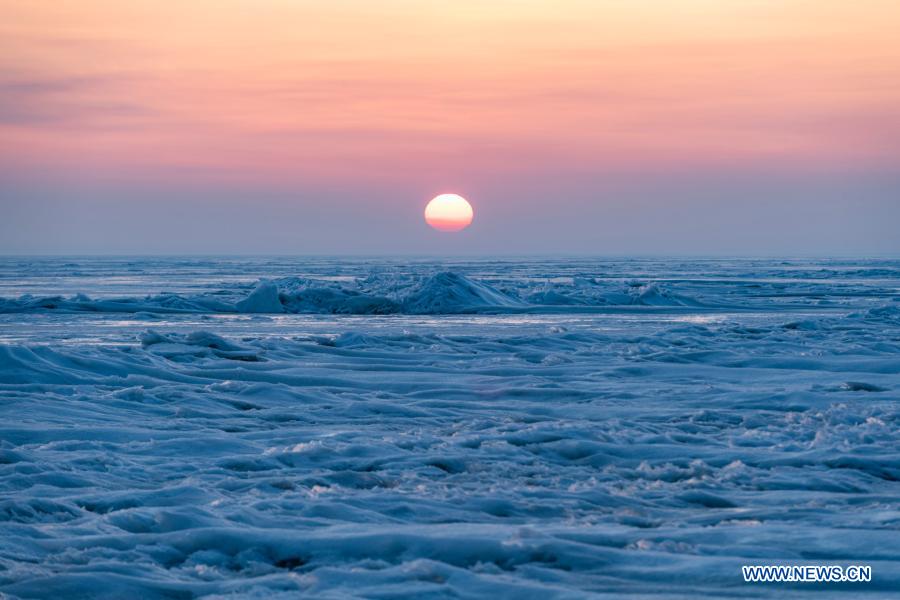
Xingkai_Lake.
Local Cuisine and Accommodation Nearby
When exploring the stunning natural beauty of Xingkai Lake, you’ll want to indulge in the local cuisine and consider some of the nearby accommodations that enhance your travel experience.
Culinary Delights
Local Cuisine
The culinary landscape around Xingkai Lake is a vibrant tapestry of flavors influenced by both traditional Chinese and local Manchu cooking. One must-try dish is the Xingkai Lake Fish, freshly caught from the lake itself. Often steamed with fragrant herbs and spices, it offers a delicate taste that reflects the pristine waters. Pair it with wild mushrooms, which are abundant in the surrounding forests, sautéed with garlic and served as a side dish.
For those with a sweet tooth, Manchu-style pastries are a delightful treat. These flaky, sweet delights often come filled with red bean paste or nuts, making for a perfect snack as you explore the scenic area.
Don’t miss out on the local tea houses where you can sip on aromatic teas while soaking in the serene views of the lake. Many establishments also offer light snacks and seasonal fruits that are both refreshing and invigorating.
Nearby Accommodations
Staying Close to Nature
There are several charming accommodations near Xingkai Lake that cater to different tastes and budgets:
-
Xingkai Lake Resort Hotel
This resort offers stunning views of the lake and is equipped with modern amenities for a comfortable stay. With spacious rooms and a restaurant serving local delicacies, it’s an excellent choice for those looking to immerse themselves in the area’s beauty. -
Dangbi Town Guesthouse
For a more intimate experience, consider staying in a guesthouse in Dangbi Town. These cozy accommodations often feature traditional decor and provide a unique opportunity to connect with local families. Enjoy home-cooked meals and personalized hospitality that will make your stay memorable. -
Xingkai Lake Hostel
Perfect for budget travelers, this hostel offers dormitory-style accommodations along with private rooms. It’s a great place to meet fellow travelers and share stories about your adventures around the lake. The communal kitchen allows you to prepare your own meals, or you can venture out to nearby eateries. -
Eco-Friendly Lodges
For those who prioritize sustainability, several eco-lodges are located near the wetlands. These lodges focus on environmentally friendly practices while providing comfortable accommodations. Many offer guided tours to explore the local flora and fauna, including birdwatching opportunities during migration seasons.
Conclusion
Visiting Xingkai Lake is not only about enjoying the breathtaking scenery but also about savoring the local flavors and finding the perfect place to rest your head after a day of exploration. Whether you opt for a luxurious resort or a quaint guesthouse, you’re bound to leave with cherished memories and a palate enriched by the tastes of this beautiful region.
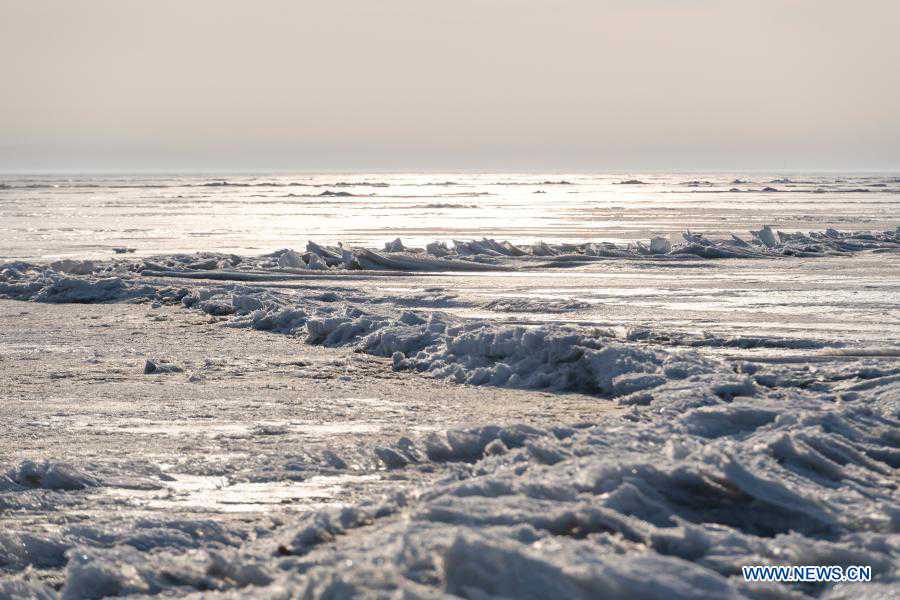
Xingkai_Lake.
Frequently Asked Questions
Frequently Asked Questions About Xingkai Lake Westland Park
-
Where is Xingkai Lake located?
Xingkai Lake is situated on the Sino-Russian border, approximately 40 kilometers southeast of Mishan City in Jixi City, China. It is the largest freshwater lake in Northeast China and has significant cultural and geographical importance. -
What are the best times to visit Xingkai Lake?
The ideal time to explore Xingkai Lake is during the tourist season, which typically runs from May to September. During this period, you can enjoy the lake’s beauty and partake in various attractions. From December to March, the lake may be closed seasonally, limiting access to many sites. -
What attractions can I find at Xingkai Lake Westland Park?
The scenic area includes popular spots such as the Dragon King Temple, Honey Mountain, Golden Beach, and the Xingkai Lake Museum. Visitors can also enjoy the natural beauty of the wetlands, which are home to migratory birds, and the picturesque views of nearby Dangbi Town. -
Is there an entrance fee for Xingkai Lake Westland Park?
Yes, there is an entrance fee to access the park. For the most accurate and up-to-date ticket prices, it is recommended to check official tourism websites or contact the park directly at +86-467-5608802. -
What amenities are available for visitors?
Xingkai Lake Westland Park offers various amenities, including parking facilities, dining options, and souvenir shops. This makes it convenient for travelers looking to spend a day exploring the area. -
How can I reach Xingkai Lake from Mishan City?
The park is easily accessible by car or local transportation from Mishan City. You can hire a taxi or look for local buses that operate routes to the scenic area. Be sure to check local schedules for the most efficient travel times. -
Are there any accommodations near Xingkai Lake?
Yes, there are several hotels and guesthouses in and around Mishan City that can serve as a base for your travels to Xingkai Lake. It is advisable to book in advance, especially during the peak tourist season. -
Can I engage in water activities at Xingkai Lake?
Absolutely! Visitors can enjoy a variety of water activities, such as swimming, boating, and sunbathing on the beaches. The serene environment provides a perfect setting for relaxation and outdoor fun.
Final Thoughts on Your Trip
As your journey around Xingkai Lake comes to a close, take a moment to reflect on the memories you’ve created amidst its breathtaking vistas and diverse ecosystems. This enchanting locale, often referred to as the “pearl of Northeast China,” is a stunning testament to nature’s artistry, where the tranquil waters meet lush wetlands and vibrant wildlife. Whether you explored the serene shores of Dangbi Town, marveled at the migratory birds in the Wetland Park, or soaked in the cultural richness at the Xingkai Lake Museum, each experience adds a unique chapter to your travel narrative.
For international travelers, Xingkai Lake is more than just a destination; it’s an invitation to connect with the natural world and immerse yourself in the local culture, history, and traditions. Remember, the best moments often come from simply pausing to appreciate the beauty around you—the gentle ripple of water, the rustle of leaves in the breeze, or the laughter of locals enjoying a sunny day on the beach.
As you plan your next adventure, carry the spirit of Xingkai Lake with you. Let it inspire you to seek out hidden gems in your travels, to embrace the unexpected, and to find joy in the simple pleasures that each new destination offers. Safe travels, and may your journey be filled with wonder!